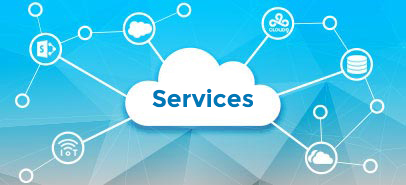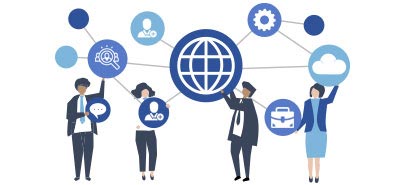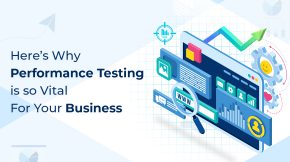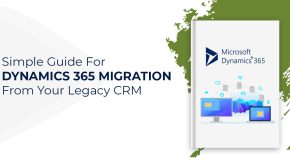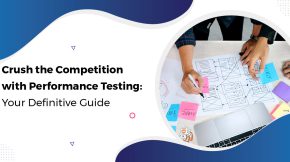Enhancing Student Journey: The Synergy of AI in Higher Education and CRM
Delivering student experiences in AI economy
Recognizing the increasing importance of lifelong learning and workforce development, institutions should offer professional graduate and executive education programs centered around the needs of the students. To identify the most relevant topics and areas of learning for both employers and employees, collaboration with industry experts and adopting a technology solution can provide invaluable insights into emerging trends and required skillsets.
In this AI-driven economy, it is imperative to ensure that attending students feel acknowledged and appreciated, fostering a greater likelihood of course completion.
How AI in Higher Education Can Help Maximize Student Lifetime Value
In the present omni-channel landscape, students and parents demand seamless experiences across all interaction points. They expect institutes to anticipate their needs and offer services and curriculum tailored to meet those needs. However, despite this expectation for satisfying student experiences, many institutes face challenges in effectively managing, measuring, and enhancing these journeys.
This is largely due to data being trapped within siloed, outdated systems, inaccessible to the teams that need it to derive meaningful insights. Consequently, they struggle to obtain actionable insights necessary for making data-driven decisions.
AI in Higher Education CRM provides immense value to contemporary businesses by:
- Advanced predictive analytics and closed-loop feedback mechanisms.
- Real-time machine learning and AI recommendations into workflows, facilitating swift operational enhancements.
- Elevating personalization at every stage of the admissions cycle, ensuring tailored engagement with prospective students.
MS Dynamics 365 CRM for Omnichannel Student Engagement
Understanding and meeting student expectations can be quite the challenge for colleges. That’s why many institutions rely on a data-driven approach to personalize their interactions with prospective students.
Some of Higher Education AI- enabled CRM features include:
- Admission management system with student insights
- Automating student journey tracking and sales tasks
- Student profiles, activity tracking, communication automation, and sales process design- with recommendations on next best actions.
- Capturing student inquiries from various channels like LinkedIn, Facebook and IVR.
- Running targeted communication campaigns based on student journey tracking
- Advanced performance analytics for EdTech sales
- Integration with Microsoft Office for seamless data management
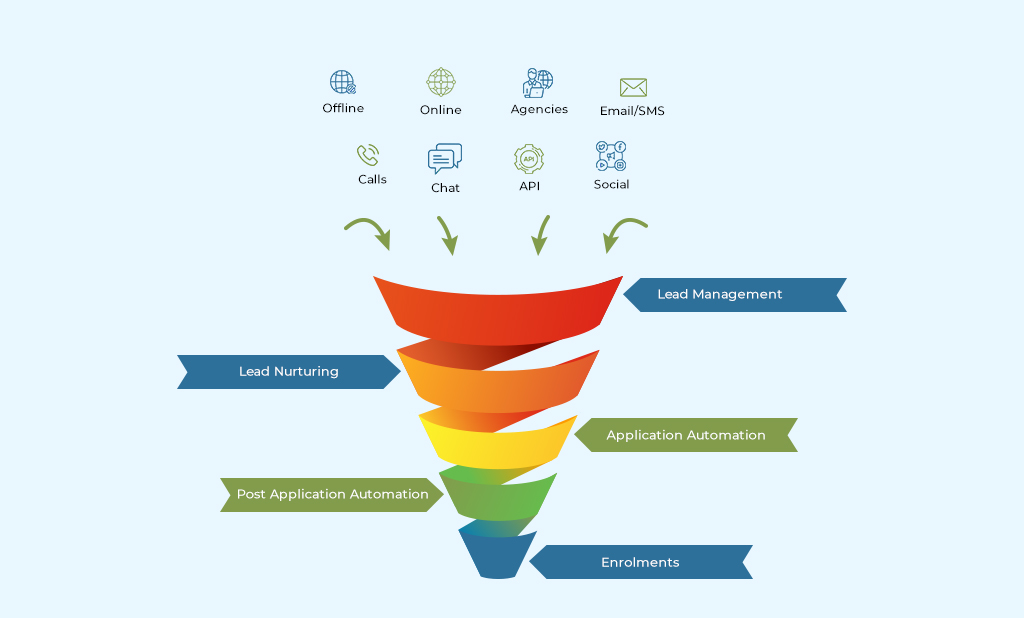
Possibilities with MS Dynamics 365 CRM
By using Customer Relationship Management (CRM) software like MS Dynamics 365 CRM, colleges can tailor their communication to each student’s preferences. This means reaching out through preferred channels, sending messages at optimal times, and customizing content based on a student’s academic interests.
This personalized communication can pay off big time, especially when colleges are aiming to boost their enrollment rates, known as yield. Yield is crucial for colleges to meet their enrollment targets and achieve their institutional goals.
- K-12 parent and student portals for accessing school-related information.
- Digitally transforming application processes using Microsoft Power Platform
- Alumni/Donor management for fundraising efforts.
- Student behavior management applications to encourage positive behavior.
Here’s how implementing AI in Higher Education CRM can add value to various functions:
| Marketing
|
- Product Recommendation
- Customer Insights
- Churn Analytics
|
| Sales
|
- Lead Scoring
- Sales Insights
- Dynamic Pricing
|
| Service
|
- Chatbots
- Waiting Line Optimization
- Virtual Assistants
|
Integrating AI into your Education CRM Reduces Overall Ownership Costs
Opting for an integrated platform over multiple point solutions not only simplifies data management complexity for higher education institutions but also yields cost savings.
Consolidating transactional, demographic, and behavioral data becomes effortless with AI-powered identity management. With Copilot, you gain the ability to efficiently describe target segments, allowing for the creation of personalized experiences tailored to individual preferences. By utilizing this comprehensive understanding, you can make informed decisions driven by actionable insights. Moreover, Copilot offers flexibility, allowing you to customize the solution to match your unique preferences and requirements.
Elevate Support with Dynamics 365 AI for Customer Service
Dynamics 365 AI for Customer Service revolutionizes support by leveraging automated insights and virtual agents. This approach enhances satisfaction through personalized experiences while reducing service costs. By gaining actionable insights into performance metrics, operational data, and emerging trends, you can optimize your organizations for greater efficiency. With transparency always maintained in interactions, Dynamics 365 AI for Customer Service empowers you to harness the full potential of Artificial Intelligence, driving success in service.
Selecting the Best CRM for Higher Education: A Step-by-Step Guide
After understanding the advantages of CRM for higher education, institutions must carefully evaluate and select the most suitable CRM solution tailored to their specific needs. When comparing different CRM platforms, consider the following questions:
- Is the CRM platform provide data security
- Is customization possible?
- How is setup and maintenance managed?
- Does it deliver a reputable user experience and ROI?
- What is the quality of customer support?
- Is it designed to accommodate colleges and universities of varying sizes?
- Will it scale effectively as your institution grows?
By following these steps, institutions can make informed decisions and select a CRM platform that effectively addresses their needs and supports their goals for the future.
Identify Pain Points
- Pinpoint areas where your institution faces challenges.
- Consider common issues voiced by students, faculty, and staff.
- Evaluate existing systems that may not be meeting your needs.
- Define both current and future institutional goals and challenges.
Assess Current Programs and Systems
- List the platforms used for recruitment, admissions, student engagement, etc.
- Evaluate the effectiveness of each system and its potential for future use.
Set a Budget
- Determine the financial investment feasible for CRM implementation.
- Compare platforms based on features and user numbers, considering functionality, customer service, and ease of use.
Compare Features and Resources
- Prioritize features essential for your institution’s requirements.
- Choose a provider offering onboarding and support services for optimal CRM utilization.
Review Customer References
- Seek feedback from institutions similar to yours.
- Explore customer community groups and review sites for insights.
Narrow Down Options
- Refine your list based on features, functionality, and alignment with institutional values.
- Request demos from the remaining options and gather feedback from potential users.
Maximizing Opportunities Throughout the Student Lifecycle
To not only survive but thrive in the evolving landscape, educational institutions must undergo transformation. Throughout the entirety of the traditional student lifecycle, higher education entities are tasked with providing outstanding and captivating experiences and services.
During the stages of recruitment and admission, institutions must precisely target potential students and engage with them through their preferred communication channels. This approach helps in attracting and retaining high-quality applicants who align well with the institution’s programs. Moreover, upon acceptance, universities need to curate personalized experiences to reduce the occurrence of accepted students who ultimately do not enroll.
Conclusion
Utilizing data and insights collected from a student CRM, universities can develop targeted marketing campaigns that are both efficient and cost-effective. Additionally, AI in high school education CRM platform streamlines processes, making communication with applicants easier and ensuring sustained engagement throughout the admissions journey.
Choosing the ideal CRM for your institution necessitates a thorough comprehension of your specific objectives and how they align with the CRM’s features. MS Dynamics 365 CRM when turbocharged with AI capabilities provides a robust suite of features designed to facilitate the management of applications, admissions procedures, student engagement, and alumni relations seamlessly.
With MS Dynamics 365 CRM, both K12 and Higher Education can streamline their operations, enhance student engagement, and ultimately improve outcomes for both students and the institution.


